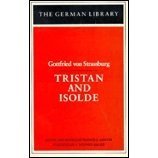What do you think?
Rate this book


320 pages, Paperback
Published August 1, 1988
Es completamente cierto lo que dicen: 'El amor ha sido espantado y ahuyentado hasta el lugar más distante'. Sólo nos queda el concepto de lo que es el amor. Sólo el nombre nos ha quedado. Pero incluso éste lo hemos desgastado tanto a fuerza de mencionarlo, que el moribundo se avergüenza ahora de su nombre y siente que le resulta antipático.